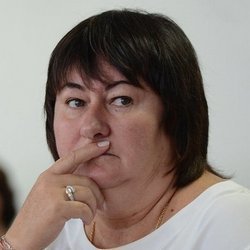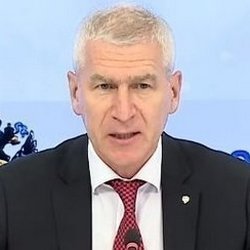100 days to go to Winter Olympics in China
We are reading Beijing’s coffee grounds
There are 100 days to the start of the Winter Games in Beijing, it is the time to make interim forecasts. We will see the most unpredictable Games of modern time. Its scale is comparable only to the first Olympics when the competitions were held for the first time and there hadn’t yet been favourites. Now the similarity has almost the same motives. Realnoe Vremya is guessing what will happen in 100 days.
Reading coffee grounds
Competitions in Beijing, which are usually considered test events, haven’t been hosted during the year. Realnoe Vremya has already written that China is ignoring such competitions assuming that this was caused including by the Celestial Kingdom’s key athlete swimmer Sun Yang’s disqualification. No matter what it is, the first test events took place only last week when short track masters gathered in Beijing, on the ice of the local sports venue. So Olympic qualification tournaments that Japan’s Nagoya, Hungary’s Debrecen and Holland’s Dordrecht will hold too kicked off.
The Cross-Country Skiing Federation’s President Yelena Vyalbe shared her expectations with Kazan journalists as early as in spring.

Here it is noteworthy that as for skiing and probably long-suffering biathlon, Russia will have a microscopic edge over its opponents. We must know the terrain of Chinese tracks better than others because we signed an agreement with the Chinese federation, and Konstantin Glavatskikh, 36, Raul Shakirzyanov, 32, Ivan Kirillov, 24, Nikita Yegorov, 23, as well as Marina Chernousova, 24, Anastasia Moskalenko, 30, Diana Golovan, 27, Gabriella Kaluger, 26, joined this country’s team. Glavatskikh who competed at the 2009 Winter Universiade in Chinese’s Harbin is the foremost among them. While probably Golovan who was on the country’s team as early as 2019 training in Yegor Sorin’s group and Kirillov from Marcus Kramer’s group were considered one of the most promising athletes. But they will unlikely repeat the fate of same Yelena Khrustalyova who became an Olympic silver medallist in Vancouver in 2020 changing the Russian team for Kazakhstan’s squad via Belarus.
This will give the skiers themselves an opportunity to compete at the Olympics, China will solve the problem of its application for the home competition, since local skiers simply couldn’t score the necessary scores to qualify for the Olympics because of the absence of competitions. While Russia will obtain necessary information about the track, the state of snow and other nuances, as coaches and staff went with the athletes there.
Detailed knowledge of the track is very important. We will remind you of the most remembered case in Olympic history when Slovenian-born Petra Majdič skied off-course in Olympic Vancouver. And in general it is necessary to note Yelena Vyalbe here who won a race of deputies but sacrificed her mandate for an Olympic event. Since now it is time to remake slogans of the past years, everything is for Beijing! Everything is for victory!
Matytsin’s version: a spot in the top 3 is good, in the top 5 is satisfactory

For starters, at the Olympics in Pyeongchang, we were 13th, moreover, our newspaper successfully had predicted not only the number of gold medals but also their owners — Alina Zagitova and Russia’s hockey team. At that moment, it was easy to make forecasts, one just had to choose between Zagitova and Yevgenia Medvedeva.
Everything is very complicated now even in the women’s single skating. Our most stable figure skater — Anna Shcherbakova — finished second in a low-rated tournament. But the most concerning thing is that she hasn’t yet performed a quad this season. Seemingly, puberty has caught up with our Shcherbakova whom TV commentator Tatiana Tarasova named as “as light as a feather.” And a fight with this will be one of the main problems also for Alyona Kostornaya and Alexandra Trusova. However, with such a team with Kamila Valiyeva, Maya Usachyova, Daria Khromykh and “Empress” Yelizaveta Tuktamysheva, the Figure Skating Federation should only make sure they don’t burn out in a competitive contest at Russian and European championships, and of course, that they give coronavirus no chance our swimmer Ilya Borodin who missed the competition in Tokyo did.
A gold in the singles, pairs and team events is a low priority task for the Russian skaters. Again, we cannot say before the nationals who must perform this task. Sadly, Tatarstan figure skater Yevgenia Tarasova risks having no medal like her partner Vladimir Morozov — nowadays they are balancing between the country’s second and third positions. Meanwhile, there will be changes in team events, according to which coaches of our national team can field only one pair, not two as it was earlier. And this will complicate the task of winning medals more.
Skiing is another hope for Tatarstan residents or, more precisely, Andrey Larkov who is famous for his fighting spirit demonstrated in the relay. Nowadays Andrey trains with Oleg Perevozchikov, while they haven’t even started working unlike the groups of Yury Borodavko (Bolshunov, Nepryayev, Spitsov, Chervotkin & Co) and Marcus Kramer (Bessmertnykh, Retivykh, Stupak, Ustyugov, etc.). By the way, Maria Istomina, Natalia Nepryayeva and Alexey Chervotkin competed in the Roller Skis World Championships, which are quite popular among skiers during non-Olympic seasons. But now a lot of favourites decided not to fix the roof before it starts to rain but wait till the end, so to speak, not to squander energy in advance.
Anastasia Kuleshova’s statement that she is ready to pay more attention to her family and child and not fight for a spot on the team seems interesting. It should be reminded that before getting married, this athlete’s last name was Sedova and she won a bronze in Pyeongchang in the relay together with Nepryayeva, Yulia Stupak (née Belorukova) and Anna Nechayevskaya. In this respect, the chances of Khristina Matsokina who specialises in the classic technique, which is important when making up a relay team, for an Olympic debut go up. In general our skiing team is the biggest from a perspective of the number of competitors on the country’s national team (it has as many as six people). In any case, skis must become the second source of replenishment of the medal standings in line with figure skating.
Tatarstan’s other hope for ice hockey
If we close the topic of Tatarstan hopes for a medal, we will simply mention ice hockey. The mess that is happening on the country’s team regarding the coaching staff and managers doesn’t allow making a more detailed forecast for Beijing 2022. Also, ours will be among the candidates for gold. Hopefully, the team will have room not only for hockey players from Moscow and Saint Petersburg like it was in Pyeongchang.
Matytsin’s forecast is modest enough, let’s admit it, also because Russia has catastrophically few its “own” winter sports. The winner of the medal table at Pyeongchang in 2018 Norway has skiing and biathlon (nine and seven golds at 2021 world championships respectively). The Netherlands have speed skating (seven golds at the 2021 world cup). Germany and France, Canada and Sweden are strong in general. Russia has stars in speed and short track skating, snowboard and freestyle, bobsleigh and skeleton, but this doesn’t provide such a good harvest of medals. In same snowboard and freestyle, Russia won a confident victory at the recent 2021 world championships, but the problem is that four in six medals aren’t Olympic events — big air and parallel mogul in freestyle as well as parallel slalom in snowboard. However, big air was then added to the programme, which means we can hope Tatarstan athletes Vladislav Khadarin, Milena Bykova and probably Dmitry Sarsembayev will go to the Olympics.
Among these three athletes, Bykova is the most promising one, she was fourth at the 2019 World Championships. But she will have to get to the team because Sofia Nadyrshina and Natalia Soboleva are objectively more decorated than the representative of Kazan who arrived here from neighbouring Bashkortostan. It is necessary to note that the current successes in this discipline also rest on the victory traditions founded by Svetlana Boldykova, Alyona Zavarzina, Yekaterina Tudegesheva.
By the way, following short track, China will host test bobsleigh competitions. The country’s team has an athlete from Kazan Ruslan Samitov. He already competed at the Olympics in Pyeongchang and had to train with an urgently created crew. Earlier this year, Samitov won bronze together with Mikhail Mordasov, Ilya Malykh and pilot Rostislav Gaytyukevich. Unfortunately, this team split up. Gaytyukevich is going to compete in China, while Samitov didn’t even go there, was a sub and didn’t make it to one of the three strongest crews.
To sum the forecasts up, the representatives of Tatarstan will likely compete worse than in Korea where three medals were won. The number of athletes will be smaller than in Sochi — there were eight people then. Russia in general will show a better result than in Pyeongchang because it can’t be worse, but the country will notably fall behind the results achieved in Sochi in 2014.